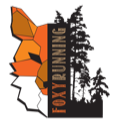Introduction
Running a half-marathon is a significant accomplishment and requires a lot of dedication and hard work. Along with training your body to run long distances, it’s essential to fuel your body with the right nutrients to help you perform your best. In this blog post, we will discuss the essential nutrients for running a half-marathon and how to make sure you are getting enough of them in your diet.
Carbohydrates
Carbohydrates are the primary energy source for running a half-marathon. They are stored in the muscles and liver as glycogen and are used to fuel the body during intense exercise. It’s essential to consume enough carbohydrates before and during the race to ensure you have enough energy to complete the race.
Before the race, it’s recommended to consume a high-carbohydrate meal or snack around three to four hours before the race starts. This can include foods like pasta, rice, potatoes, or bread. During the race, it’s also important to consume carbohydrates to help maintain energy levels. This can be in the form of sports drinks, gels, or energy bars.
Protein
Protein is essential for repairing and building muscle tissue, which is important for runners. Consuming enough protein can help reduce muscle soreness and aid in recovery after the race. It’s recommended to consume around 0.5-0.7 grams of protein per pound of body weight per day for runners.
Good sources of protein include lean meats, fish, eggs, and dairy products. Vegetarian and vegan options include beans, lentils, and tofu. It’s also important to consume protein after a workout to aid in muscle recovery. This can be in the form of a protein shake or a meal that includes protein.
Iron
Iron is essential for carrying oxygen to the muscles, which is important for runners. Low iron levels can lead to fatigue, decreased performance, and a higher risk of injury. Good sources of iron include red meat, poultry, fish, and leafy greens. It’s also important to consume vitamin C with iron-rich foods to help the body absorb iron.
Vitamin D
Vitamin D is essential for bone health and can also aid in muscle recovery. Many people are deficient in vitamin D, and runners may be at a higher risk due to spending time indoors and training in the early morning or evening when the sun is low. Fatty fish, eggs, and fortified meals are all excellent sources of vitamin D. It’s also important to get regular sun exposure to help the body produce vitamin D.
Fats
Fats are important for energy and hormone production. They also aid in the absorption of fat-soluble vitamins like vitamins A, D, E, and K. It’s important to consume enough healthy fats like olive oil, avocado, nuts, and seeds. It’s also important to limit saturated and trans fats, which can be found in processed foods and fried foods.
Conclusion
Running a half-marathon is a great accomplishment and requires a lot of dedication and hard work. Along with training your body to run long distances, it’s essential to fuel your body with the right nutrients to help you perform your best. It is advisable to know the distance between the aid stations during the half-marathon so you can prepare yourself to stay hydrated. Carbohydrates, protein, iron, vitamin D, and fats are essential for running a half-marathon. Make sure to consume enough of these nutrients in your diet and make sure to eat a good meal before and after the race to ensure you have enough energy to complete the race and aid in muscle recovery. Remember to always consult with a dietitian or a nutritionist for a personalised dietary plan for your running regimen.

